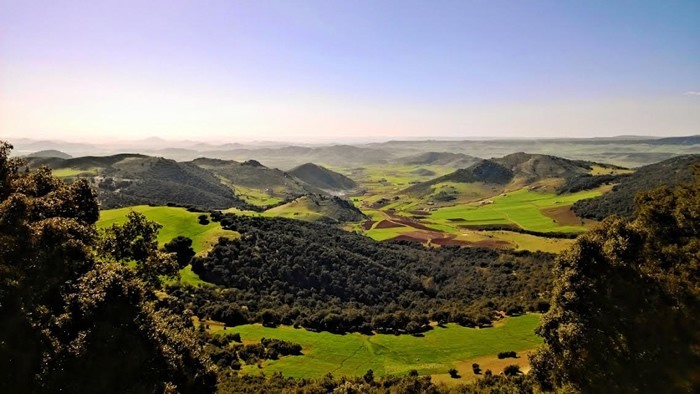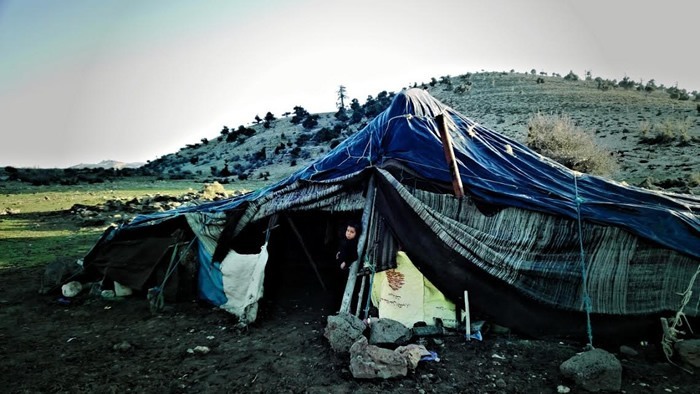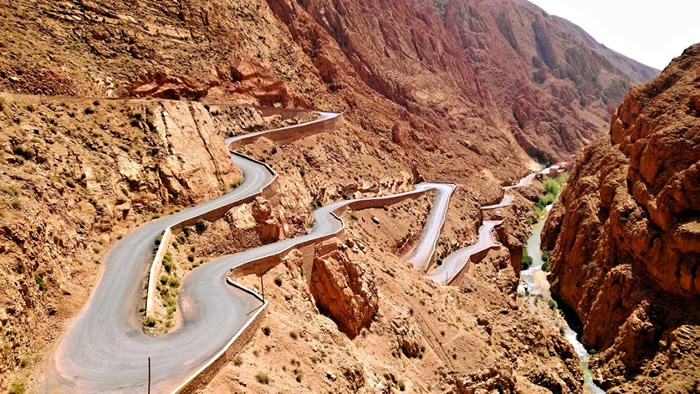Four Ways You Are Already An Explorer
Article and photos by Amy
Gigi Alexander
9/21/2015
 |
| The central valley
in Morocco. Photo © and courtesy of Amy Gigi
Alexander. |
Explorer. When I used to hear that word,
I thought that it did not apply to me. An explorer, in my
mind, was a person who crossed the Antarctic solo, carrying
all of their supplies, discovering new lands and animals,
while having dangerous adventures. I was not an explorer — I
was a traveler.
One of the reasons I thought this way
about exploring was that historically we have been taught
that exploration meant discovery of previously “unknown”
places, peoples, and species. But places existed before
explorers found them and mapped them; peoples existed before
explorers decided to go and visit them; and species thrived
before they were collected and labeled.
When I began to think about what exploration
means in modern times, I began to see myself as an explorer.
Exploration today is about our own human potential — whether
it is an inner journey or one based on discovery outside
of ourselves.
You might be surprised to find out that
you are a modern day explorer, too.
Four Ways You Are Already Exploring:
You Feel Wanderlust
If you daydream about going places — or
have already been to many, and can’t stop planning your
next journey — that’s wanderlust. The magnetism of wanderlust
is similar to what early explorers felt: an overwhelming
desire to see or experience something to which they were
connected and felt driven to seek out.
We often think of wanderlust as something
that can cause us to take epic journeys, but it can also
help us learn to travel right where we live. Pair wanderlust
with purpose and you’ll find you are exploring. What interests
you, what is your passion? Find the places that speak to
your longings.
“Anybody can be an explorer if
they want to be. Figure out what you want to do, and
then go do it.“ — Helen Thayer, first woman
to walk across the Sahara
You are Adaptable
You’ve planned the trip of a lifetime,
and your luggage never arrived. You showed up at the homestay
you reserved months ago, only to find there is no house
at that address. You decide to wander around a city solo,
and get completely lost. Travel depends on adventure, and
adventure happens because we can’t plan for it. Explorers
rely on adventure, too — it’s what makes their stories extraordinary
and their discoveries more fruitful. But for adventure to
happen, you have to adapt. You must assume your luggage
will be found — or not. Your lodgings
will work themselves out. You are confident being lost means
you will find something even better than what you anticipated.
Sometimes I have to force myself to
adapt a little. How about going to some more remote location
that doesn’t provide access to the familiar? Give in to
the journey, and see where it takes you.
“All plans, all safeguards are
fruitless, we find after years of struggle that we
do not take a trip; a trip takes us.“ — John
Steinbeck, writer
 |
| A Berber family
I came upon off a main road in Morocco. Photo © and
courtesy of Amy Gigi Alexander. |
You are Prepared
Are you an over-packer or over-researcher?
Despite the fact that explorers have to be adaptable, they
also love to plan details. Two aspects fascinate me about
explorers from the 1500’s onward and the modern traveler
today: packing lists and the way information is gathered
today as it was for long-ago expeditions.
Today we plan our travels using travel
blogs, websites, recommendations, and guidebooks to tell
us what to expect and do. Early explorers used maps, diaries,
local people, and oral histories.
One of the best ways to prepare for
visiting a place is to read literature by travel writers.
Why not check out the travel section of your local library,
and skip the guidebooks in lieu of a collection of short
stories or a travel adventure?
“To read a writer is, for me,
not merely to get an idea of what he says, but to
go off with him and travel in his company.” — Andre
Gide, writer and poet
You are Willing to Take
Risks
Is traveling risky? The very fact that
you are interested in leaving your comfort zone and trying
something new is taking a risk. What is most at risk is
that your worldview will change. Risk need not be climbing
up the Seven Summits — it could be traveling alone for a gap
year, returning to the country of your roots, or a semester
at sea.
Explorers in the past used to take incredible
risks that were defined by the real possibility that they
would not return. Today we can take calculated risks and
build on those until we know a place well enough to feel
comfortable exploring it. Try talking to people you don’t
know, taking a bus on a new route, or saying yes to a dinner
invitation from a local.
“Real adventure — self determined,
self-motivated, risky, forces you to have firsthand
encounters with the world. The world the way it is,
not the way you imagine it to be. This will change
you.” — Mark Jenkins, explorer and adventurer
 |
| The most dangerous
road in Morocco. Photo © and courtesy of Amy
Gigi Alexander. |
 |
Amy Gigi Alexander is
a travel writer and geo-cultural explorer
who specializes in solo explorations. She
writes for numerous publications. |
|
